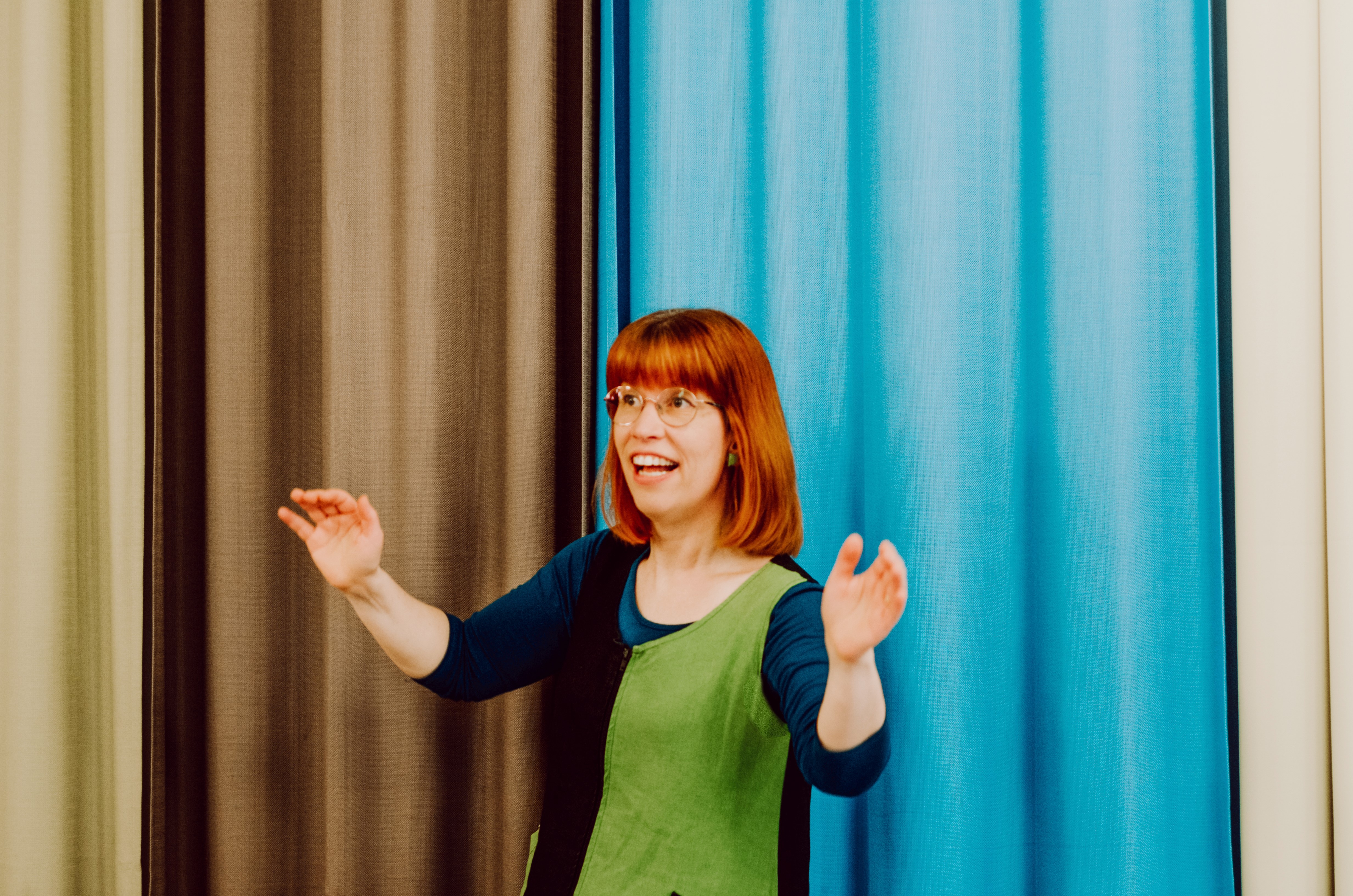About us - Taideobservatorio

General
Founded in 2017, the Observatory for Arts and Cultural Education, Finland seeks to reinforce the equal accessibility and effectiveness of arts and cultural education and to improve the social status and appreciation of the field. Its top priority is children’s and young people’s arts and cultural education. Another objective is to promote lifelong learning and arts and cultural education intended for various age and target groups.
The Observatory collects, analyses, interprets and disseminates information on the practices and policies in the field of arts and cultural education in Finland. It reinforces the knowledge base, connections between research and practical work, and the European cooperation in the field. The Finnish Observatory is a member of the European Network of Observatories in the Field of Arts and Cultural Education (ENO). The Observatory’s membership in the ENO enables comparison of Finnish practices and research findings in the field of arts education with their counterparts in other countries while simultaneously enhancing the international visibility of the field.
The Observatory for Arts and Cultural Education, Finland is formed by CERADA Center for Educational Research and Academic Development in the Arts (part of the University of the Arts Helsinki) and the Association of Children’s Culture in Finland. Its cooperation partners are Aalto University's School of Arts, Design and Architecture, University of Lapland's Faculty of Art and Design, The Haukkala Foundation, Finnish association for basic education in arts, The Finnish Association of Adult Education Centres, and Finnish National Agency for Education. The Finnish Ministry of Education and Culture supports the Observatory’s actions. The work programme of the Finnish Observatory is in agreement with the UNESCO policies and guidelines for arts and cultural education and with the Articles of Association of the ENO network.
National working programme 2023–2027
The Observatory for Arts and Cultural Education, Finland National Working Programme 2023–2027 is based on the significance of arts and culture both for the individual and for society identified and recognised in Finnish society. Several previous governments have placed emphasis on the accessibility and availability of culture in their government programmes. The objective of providing every child and young person with an opportunity to engage in arts and culture has been emphasised in the Finnish arts and culture policy. Arts and cultural education aims at strengthening the individual’s creative skills, cultural competence and wellbeing.
The Observatory for Arts and Cultural Education, Finland is a member of the European Network of Observatories in the Field of Arts and Cultural Education (ENO). The ENO network requires its members to draw up a national working programme. The national working programme defines the purpose of the activities, key objectives and measures of the Finnish Observatory for the period 2023–2027.

Partners
CERADA – Center for Educational Research and Academic Development in the Arts (part of the University of the Arts Helsinki)
The CERADA research centre (from 2023 on a network inside the university's Research Institute) is the administrator, one of the two owners and the founding member of the Observatory for Arts and Cultural Education, Finland.
CERADA’s operations focus on research into arts education and research-based development of higher education in the arts. The research responds to the needs for development in arts education and higher education in the arts, as well as professional development for artists and arts teachers.
In the Observatory, the research network is represented by Professor Eeva Anttila and researcher Tuulikki Laes.
Association of Children’s Culture in Finland
The Association of Children’s Culture in Finland is the other owner and founding member of the Observatory. The association advances the operation of professional cultural centres for children and adolescents in Finland and promotes competence in the field of children’s culture as well as its visibility nationwide. The association arranges the National Children’s Culture Forum on an annual basis and provides operators in the field of children’s culture with networking opportunities.
In the Observatory’s operations, the association is represented by Aleksi Valta, Executive Director and member of the Board, and Minna Haveri, head of cultural services for children and young people at cultural centre ARX.
Aalto University's Department of Art
Aalto University's Department of Art is recognised for its high-quality artistic and art pedagogical activities, scholarship, and research. The department has three degree programmes that are directed by leading scholars and practitioners in their field. The programmes focus on art education, Nordic visual communications and visual cultures and contemporary art. The Department of Art educates and prepares professionals for the fields of art education, curating, visual culture and contemporary art.
In the Observatory’s operations, Aalto University's Department of Art is represented by Professor Anniina Suominen.
University of Lapland's Faculty of Art and Design
The dialogue between art and science is an active part of studies, research and art at the University of Lapland's Faculty of Art and Design and its collaboration with different actors in society. The connection between science and art is strengthened by the faculty’s exceptional position as part of a multidisciplinary science university.
The faculty carries out internationally ground-breaking work in environmental, community and winter art, and creates new, innovative methods for the use of service design and art education. Its diverse international networks serve as bridges to the culture, art and art education in the northern regions of Europe.
In the Observatory’s operations, the University of Lapland's Faculty of Art and Design is represented by Professor Mirja Hiltunen and Associate Professor Maria Huhmarniemi.
University of Jyväskylä Department of Music, Arts and Culture Studies
Researchers at the Department of Music, Arts and Culture Studies analyse current developments in culture, arts and music. The approaches range from critical cultural research to experimental research, both basic and applied. In the research themes, art and culture are shown as a force for change and a source of wellbeing as well as the corporeality, emotionality, mediality and multimodality of music, art and cultural products.
University Teacher Sanna Salminen represents the University of Jyväskylä Department of Music, Art and Culture Studies in the activities of the Observatory.
The Haukkala Foundation
The purpose of the Haukkala Foundation is to promote mental health in children and youth by supporting research into psychiatric and psychosocial problems and social exclusion; preventive work; care and rehabilitation; training in this field; and development work and publications, in collaboration with other actors nationally and internationally.
In the Observatory’s operations, the Haukkala Foundation is represented by the Chair of the foundation, Lea Pulkkinen, professor of psychology emerita, University of Jyväskylä, who has since the 1990s actively worked for improving children’s access to art and culture as a part of a school day.
Finnish Association for Basic Education in the Arts
The Finnish Association for Basic Education in the Arts serves as a liaison between its member organisations and promotes the societal appreciation and status of basic education in the arts. At the heart of the association’s operations is the promotion of cooperation between the arts and equality in art education.
The association engages in the discussion on basic education in the arts and seeks to influence the solutions concerning the field and its funding. The association takes a stand on topical education and cultural policy issues and engages in the activities of the networks of the field in an expert capacity.
In the Observatory’s operations, the Finnish Association for Basic Education in the Arts is represented by Viivi Seirala, Executive Director, and Ninni Pehkonen, Executive Director, The Finnish Association of literary art education.
The Finnish Association of Adult Education Centres
The Finnish Association of Adult Education Centres is a non-governmental representative organisation for adult education centres in Finland established in 1919. The association seeks to improve and promote non-formal adult education and learning in Finland.
In the Observatory’s operations, the Finnish Association of Adult Education Centres represented by Executive Director Jaana Nuottanen.
Ministry of Education and Culture
The Ministry of Education and Culture finances the Observatory’s operations.











